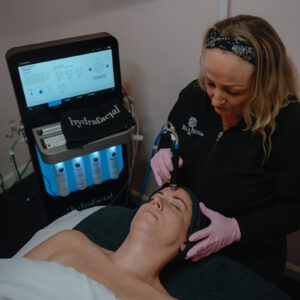Understanding Vitamin A for skin health will help you not only look good on the outside, but you will feel good on the inside. Vitamins and antioxidants are playing a big role in the health of your skin. Read on to learn the value of topical vitamins A, C and other antioxidants. We will also touch on Retinol Cream and the differences between fat soluble Vitamin A and retinoid.
Why Skin Vitamins?
Each cell in the body requires nutrients to nourish it. The skin cells need Vitamin A and other skin vitamins like C, E and Beta Carotene. The damage from the sun and the environment creates free radicals. Free radicals are cells that are on a mission to destroy other cells. Unless you stop them in their tracks with vitamins and light peels, they will convert the good cells into fine lines, wrinkles and age spots. Hey, that means stay out of the sun and start using preventative vitamins today!
Vitamin A for Skin Health
The importance of Vitamin A for anti-aging was first discovered in the early 1950’s. Because the results were not instantaneous, the studies were overlooked until the early 80’s. The early 80’s brought retinoic acid and many thought that Retin A was the only form of Vitamin A. This acid form of Vitamin A works quite well, but many can not tolerate the harshness. That is where other forms of Vitamin A work better on the skin, without the severe redness and peeling reactions.
This is why the Vitamin A esters like retinyl palmitate and retinyl acetate are better choices. Both are active and can give great results. But they are not as irritating to the skin. The dryness, redness and flaking caused by a retinoid Vitamin A is not necessary.
Advantages of Retinyl Palmitate and Retinyl Acetate forms of Vitamin A
- Easily converted by the cells- this form of vitamin a for skin health delivers the a so that it is converted in the cell.
- Penetrates the skin better than the acid form of Vitamin A
- Results in research studies compare the acid form vs. the fat soluble form. The fat soluble form provides the same results without the reactions.
Vitamin A is the Queen of all of the skin vitamins because of it’s leadership role in skin cell health. Vitamin A helps to replenish Vitamin C, while C fortifies Vitamin E. While the cells need Vitamin A, they also need Beta Carotene, a plant form of Vitamin A. While beta carotene is an antioxidant found in nature (i.e. carrots), vitamin A does not grow as a plant. This means that you need both Vitamin A and beta carotene in the skin.
Topical vitamin A increases the cellular turnover and gives collagen and elastin a little boost. It also helps to plump fine lines, reduces the number of blackheads and help oily skin. Vitamin A also reduces pigmentation, but only after continued use for over 1 year.
Vitamin A for skin health is very important for preventative aging and should be an important part of your skin care routine. Start early for #bellastrong skin.






